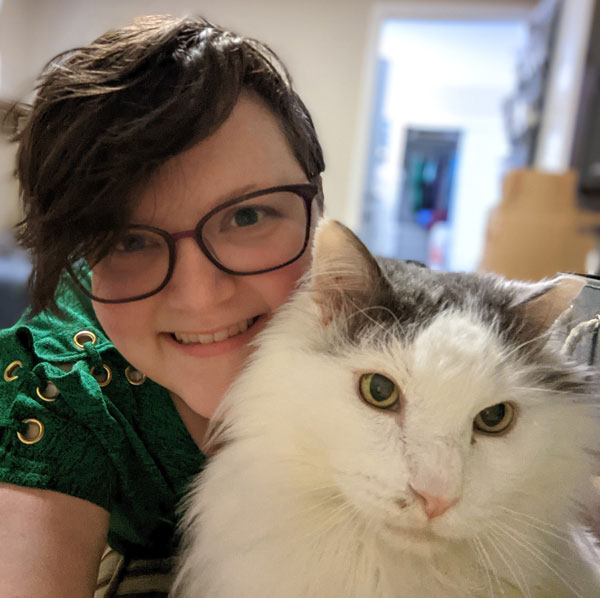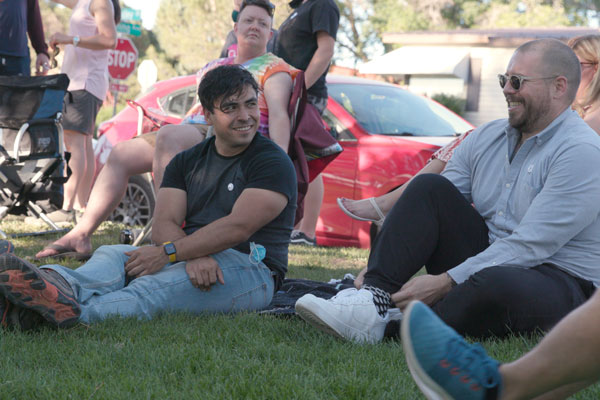
June is Pride Month, a good time to reflect on how Sandia’s diversity reflects national changes in such areas as sexual orientation and gender identity.
More adults of all orientations are single than ever, and not all experience single life the same. The ways people think about their sexual orientation and gender identity reflect those differences.
Sandia staff member Angela Norris identifies as asexual. She explains that at the core of an asexual identity is a lack of interest in sex.
“Growing up, there was a lot of talk about ‘When you have sex’ but nobody ever talked about ‘if.’ The idea of never having sex wasn’t an option,” Angela said.
Angela figured out that she was asexual more than a year ago.
“I did National Coming Out Day. Not much in my life has changed other than I understand that I never want to have sex, and that’s normal. I would literally sabotage relationships because I didn’t want sex to be a part of my life down the road,” Angela said.
Learning that she was not alone has made a huge impact on her life.
“Finding that term and that community makes a big difference because I learned I’m not weird or broken,” Angela said.
“The whole subject of sex can be kind of exhausting,” she said. “I realize that I watch a lot of cartoons and kid’s shows because the PG-rated romance is more aligned with what I want in my love life. The more adult a show is, the more likely the romance is sexually driven, and I can’t connect with it.”
In the past, people have said to Angela that she’ll change her mind as she gets older. She disagrees.
“I’ve always been this way but just had no words for it. Heteronormative narrative says that everyone has to be with someone and have sex, but that’s not true,” she said. “I’m not being difficult, and I don’t have a low sex drive.”
Angela identifies as asexual, but not aromantic, or devoid of romantic feelings for other people.

“For me, this means being open to romantic relationships with a partner but minus the sexual component,” she said. “As I’ve met more people, I’ve learned that it’s not a weird thing to feel this way. There’s a whole community of people like me.”
Angela is open to the possibility of having a life partner.
“Many people don’t understand that you can be asexual but not be single. Love and sex aren’t always intertwined,” she said.
“I would love to have a partner whom I love with all my heart. I’m not against having a family in the future. Maybe someday, I’ll adopt a child with a partner. But maybe not,” Angela said.
As the broader culture reflects these and other changes in how people live, Angela hopes that the workplace will become more flexible to accommodate workers who are without partners and children.
Angela has encountered people who say they feel badly for her and tell her she’s somehow missing something in her life. Angela said she does not feel that way at all.
“This is who I am. I’m happy,” she said. “If I was sad about my life, you could be sad. But why would you be sad if I’m not?”